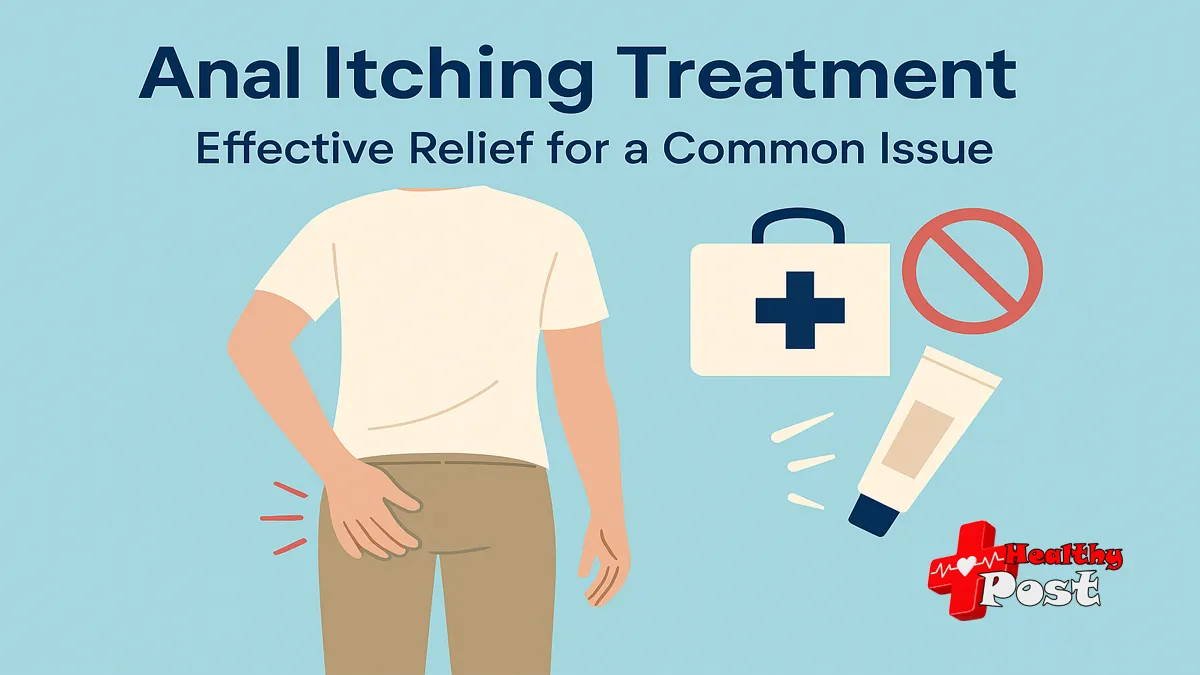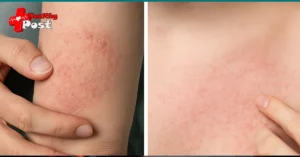
What is Anal itching, cause, symptoms and treatment
Anal itching is a specific condition characterized by severe and prolonged discomfort (itching) in the anus and perineum. According to statistics, anal itching most often affects middle-aged and elderly men.
There are two types of anal itching: primary and secondary.You will be interested in: Rumbling in the stomach (rumbling in the stomach) Abdominal pain
Primary (or true) anal itching is an independent disease, and secondary is an accompanying symptom of some diseases of the anus or diseases of the digestive tract. Acute and chronic anal itching are also distinguished. In the acute course, the following characteristic signs are observed:
- increase in perianal folds,
- the occurrence of wet eczema
- presence of traces of scratching.
The chronic stage of the disease is characterized by thinning and drying of the inflamed skin.
Often, severe itching in the anus occurs with a bacterial or fungal infection (candidiasis) against the background of weakened immunity or after taking antibiotics.
Causes of anal itching
The causes of primary (true) anal itching are not reliably known. However, there is a connection between the occurrence of this symptom and a decrease in the acidity of the contents of the sigmoid and rectum. In addition, when the tone of the anal sphincter decreases, mucus from the rectum can get onto the perianal areas of the skin, causing irritation.
The cause of secondary anal itching is the presence of anorectovaginal or other diseases of various etiologies:
- varicose veins of the rectum (internal, external hemorrhoids);
- anal fissures;
- anal fistula;
- rectal tumors;
- dermatological diseases (for example, psoriasis);
- contact dermatitis (due to the use of local medications – suppositories or ointments);
- vaginal infections in women;
- fungal or bacterial infections of the anus or rectum;
- parasitic infections (trichomoniasis, pubic lice, scabies, as well as various helminthic infestations);
- diseases of the liver and biliary tract;
- disorders of the endocrine system (diabetes mellitus).
Factors
In addition, there are a number of factors that increase the likelihood of anal itching. Among these factors, the most common is insufficient (or excessive) hygiene of the anus. Also, wearing tight trousers, excess body weight, too hot a climate, anal sex, using poor-quality (rough) toilet paper and intense physical activity can increase the likelihood of this symptom.
Eating foods that are too spicy or salty can also increase the likelihood of itching in the anal area.
If it is not possible to identify the causes or connection of anal itching with a disease, then primary or idiopathic anal itching is diagnosed. There is an opinion that such a pathological reaction of the skin of the anus is a consequence of disorders in the digestive system and inflammatory processes in the colon, in which protein food is not completely digested. Idiopathic anal itching also appears against the background of neuroses. In this case, injection methods of treatment aimed at blocking nerve endings with chemicals help to eliminate the burning sensation in the anus.
Anal Itching Symptoms: What to Watch For and Why It Matters
Anal itching, also known as pruritus ani, is an uncomfortable and often embarrassing condition that affects people of all ages. It usually begins with a persistent itch around the anus and can range from mild irritation to intense discomfort that interferes with daily life.
Common symptoms of anal itching include:
- Persistent or intermittent itching around the anus
- Redness, inflammation, or a burning sensation
- Dry, flaky, or cracked skin near the anal area
- Rawness or soreness from constant scratching
- Occasional bleeding or spotting due to broken skin
In many cases, the symptoms worsen at night or after using the restroom. Wearing tight clothing, poor hygiene, or excessive moisture around the anal area can further irritate the skin.
Anal itching symptoms are not always linked to a serious condition, but they can signal underlying issues such as hemorrhoids, fungal infections, or skin disorders like eczema or psoriasis. Sometimes, dietary triggers like spicy foods or caffeine may also contribute to flare-ups.
While over-the-counter creams and lifestyle adjustments can provide temporary relief, it’s important to identify the root cause to prevent recurrence. Consulting a healthcare professional is key if symptoms persist or worsen over time.
By recognizing the early signs of anal itching and addressing them proactively, individuals can avoid complications and restore comfort quickly.
Anal Itching Treatment: Effective Relief for a Common Issue
Anal itching treatment focuses on relieving irritation, reducing inflammation, and addressing the root cause. Known medically as pruritus ani, this condition can be triggered by poor hygiene, skin conditions, or dietary factors. The right treatment varies depending on the underlying cause.
Home remedies and lifestyle changes include:
- Maintain hygiene by gently cleansing the area with water and mild soap
- Use moist, unscented wipes instead of dry toilet paper
- Avoid scratching to prevent further irritation or skin damage
- Wear loose-fitting, breathable cotton underwear to reduce moisture buildup
- Apply a cold compress for immediate relief from itching or burning
Topical treatments: Over-the-counter creams containing hydrocortisone can soothe inflamed skin. Antifungal or antibacterial ointments may be recommended if the itch stems from an infection. Zinc oxide or calamine lotion can also form a protective barrier to calm the skin.
Dietary adjustments: Avoiding spicy foods, caffeine, alcohol, and citrus fruits may help reduce flare-ups. Drinking plenty of water and increasing fiber intake supports healthy digestion, reducing the risk of anal irritation from hard stools or frequent bowel movements.
For persistent or worsening symptoms, consulting a doctor is essential. They may prescribe stronger medications or investigate possible causes like eczema, hemorrhoids, or parasitic infections.
By adopting a comprehensive treatment approach, individuals can restore comfort and prevent the condition from recurring.


2 thoughts on “What is Anal itching, cause, symptoms and treatment”